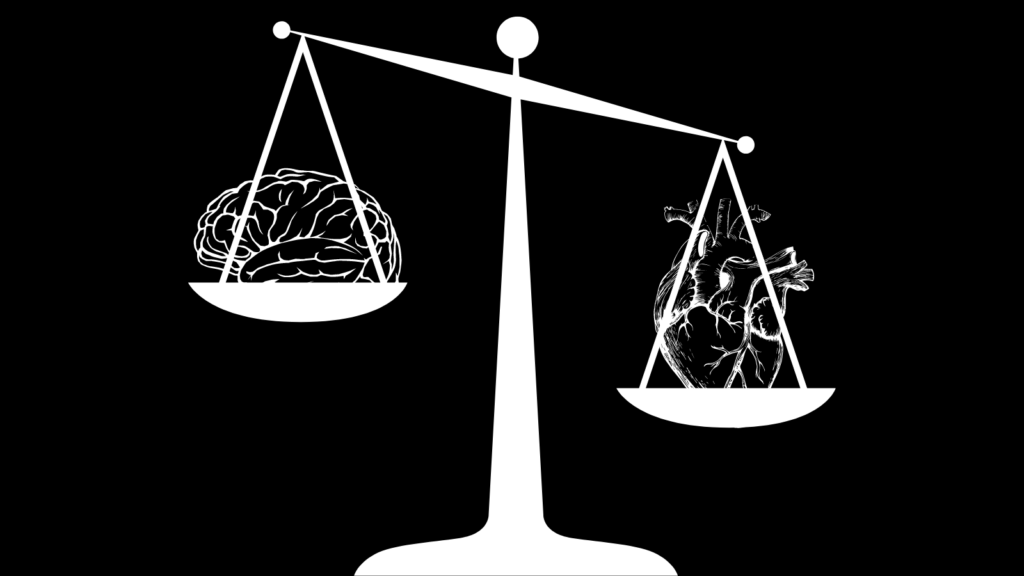Do you ever look in the mirror and barely recognize the person staring back? You see the same face, the same eyes, but something inside feels different. Maybe you’re not sure when it happened, but you can feel it—a disconnect between who you are now and who you thought you were. It’s that unsettling feeling of having crossed a line, of having compromised something fundamental. You wonder, How did I end up here? That’s where I found myself.
There’s a kind of shame in making the wrong choice and straying so far from one’s values, and the guilt can weigh heavily. You find yourself questioning not just your decisions, but your very identity.
“Am I still a good person? Can I ever make this right?“
Those questions gnaw at you, keeping you up at night, making you feel like maybe you’ve gone too far to turn back.
But here’s the truth we often forget: mistakes may shape the person you are in that moment, but they don’t define you forever. In the heat of a bad decision, or when we’re caught up in a wave of emotion or weakness, we lose sight of ourselves—not because we’re bad people, but because we’re human. And being human means we’re messy, imperfect, and sometimes pulled in directions we never intended to go.
1. Owning My Shit: Facing the Hard Truths
We all have a moment of reckoning—when the justifications we’ve been leaning on start to crumble. For me, that moment came when I realized no amount of reasoning or logic could silence that inner voice telling me I had strayed. It’s easy to hide behind intellectual explanations, telling yourself that what you’re doing makes sense, that it’s justified based on the situation or a principle. I did that for a long time.
In my case, I was involved in a situation that went against my values. I wasn’t the one cheating, but I was part of an affair. And even though I tried to convince myself that I wasn’t the one violating loyalty, it didn’t matter. I knew deep down that being involved in it, even as the third party, was a betrayal of the values I held close—honesty, fidelity, loyalty. And the more I tried to rationalize it, the more disconnected I felt from myself.
Owning your mistakes is never easy. There’s a temptation to soften the blow, to tell yourself that your situation is unique, that others wouldn’t understand. But there’s a strange kind of freedom that comes with fully admitting the truth. When I finally stopped rationalizing, when I admitted that my actions didn’t align with the person I wanted to be, it hurt—but it also allowed me to stop running from that truth. I was no longer living in denial.
2. The Clash Between What I Want and What I Stand For
This is where the internal battle really began. There was a conflict between what I wanted—an escape from loneliness, some form of comfort and connection—and what I knew was right. The thing about loneliness is that it can drive you to places you never thought you’d go. In those moments of isolation, the desire for companionship, affection, or just human contact can cloud your judgment. And that’s exactly what happened to me.
On one side, there were my desires. I wanted to feel wanted. I wanted to break out of the monotony and emptiness I’d been feeling for so long. It seemed harmless at first—just a brief reprieve from that aching sense of being alone. But on the other side, there were my values. And they weren’t just abstract principles; they were core to who I believed myself to be. Loyalty, honesty, fidelity—these weren’t just words to me. They were the foundation of how I wanted to live my life and the kind of person I aspired to be.
The thing is, desires can be fleeting, but values run deep. When we let our temporary wants override what we stand for, it leaves us feeling hollow. And that’s exactly what happened. In the moment, I thought I was filling a void, finding some solace. But in reality, I was creating a deeper wound, a larger emptiness inside. The more I gave in to that desire, the more I felt like I was losing myself. I wasn’t just betraying someone else—I was betraying myself.
3. Reflecting on My Core Values
At some point, I had to ask myself the hard question:
“Is this the kind of person I want to be?”
And even more than that,
“Does this behavior reflect the man I’m capable of becoming?”
The answer, painfully, was no. When I looked at my actions, I couldn’t escape the fact that they were out of alignment with my values. That’s the thing about values—they’re not just guidelines for good behavior. They’re part of our identity. When we live in accordance with them, we feel whole. But when we stray from them, we feel lost.
For me, those values were loyalty, honesty, and integrity. They weren’t just ideals I tried to live up to; they were the standards I wanted to set for myself. And once I fully acknowledged that I had drifted from them, it became impossible to continue justifying my actions. It wasn’t just about the affair anymore. It was about a larger pattern in my life—a willingness to compromise my values when the loneliness or need for validation got too intense.
I realized that I had to face the discomfort of my own isolation and stop looking for quick fixes. No amount of temporary comfort could fill the deeper void inside me. That void was created by my disconnection from my values, from the man I truly wanted to be. And the only way to heal that wound was to realign myself with those values.
4. Realigning Myself with Who I Want to Be
Realigning yourself is not a quick fix. It’s a slow, often painful process of making different choices, of deciding—day by day—that you will be the kind of person you truly want to be. For me, it meant walking away from the situation I had become entangled in. It meant sitting with my loneliness instead of trying to escape it. It meant re-establishing a commitment to my core values, not because it was easy, but because it was necessary for me to feel whole again.
I won’t lie—it’s hard. There will be moments when the loneliness feels unbearable, when the temptation to take the easy way out returns. But each time I choose my values over my desires, I feel a little more like myself. I feel a little closer to the person I want to be. And that’s how real change happens—not in one grand gesture, but in a series of small, consistent choices that bring you back to who you truly are.
5. We’re All Human: Striving for Better
If you’ve made mistakes, if you’ve strayed from the person you want to be, know this: you are not alone. We all fall short sometimes. We all have moments of weakness where we give in to desires that don’t align with our values. But those moments don’t have to define you forever.
What defines you is the choice to get back up. To realign yourself. To strive, every day, to be better. It’s not about perfection—it’s about progress. It’s about having the courage to face your mistakes, to own them, and to learn from them.
So here I am, owning my shit, admitting my weakness, but also choosing to be better. I hope you’ll choose the same.
Thank you for reading me, I hope it was a valuable read for you. If you liked it, please share it to people you care about that may benefit from it. You can also follow me on X, for more tips about living your life to the fullest.
See you next week,
- Lucas

